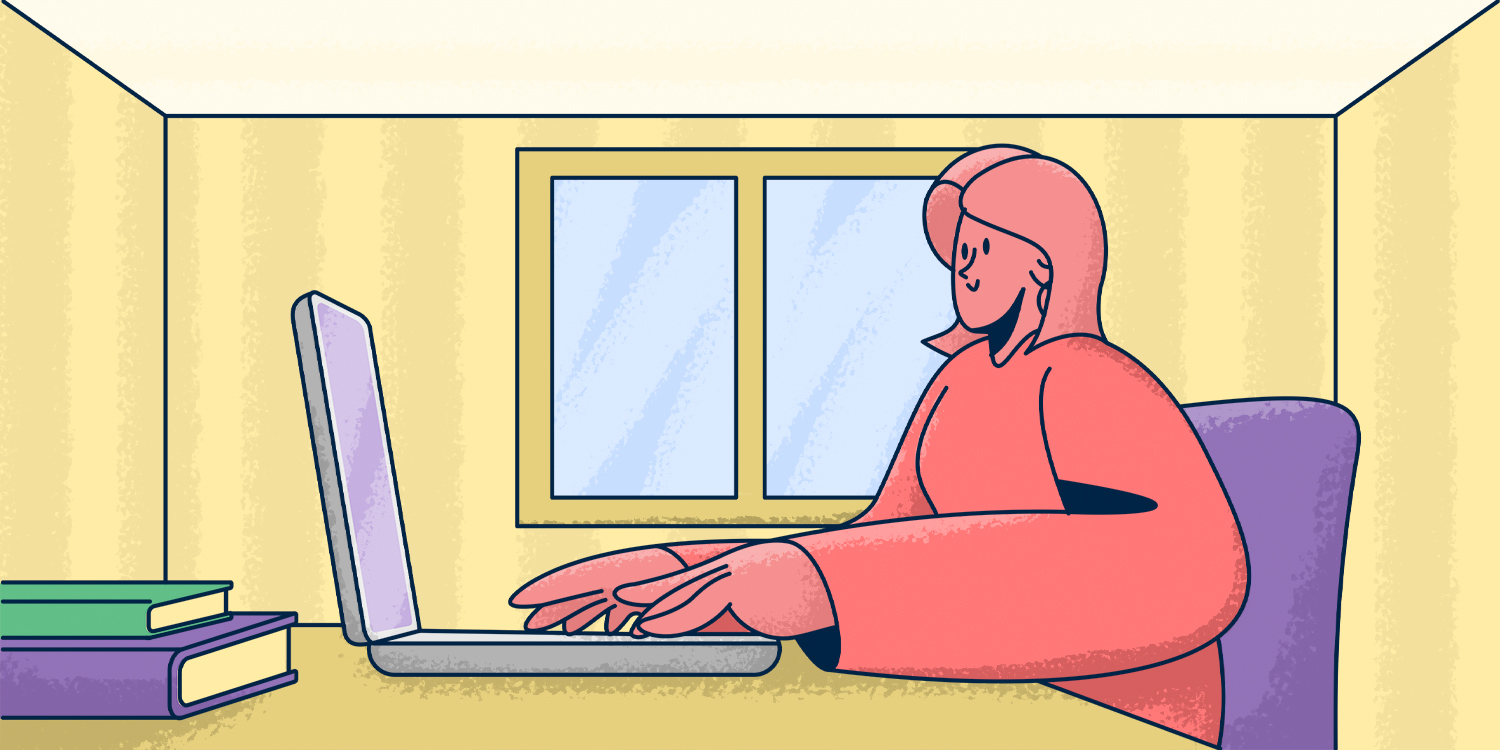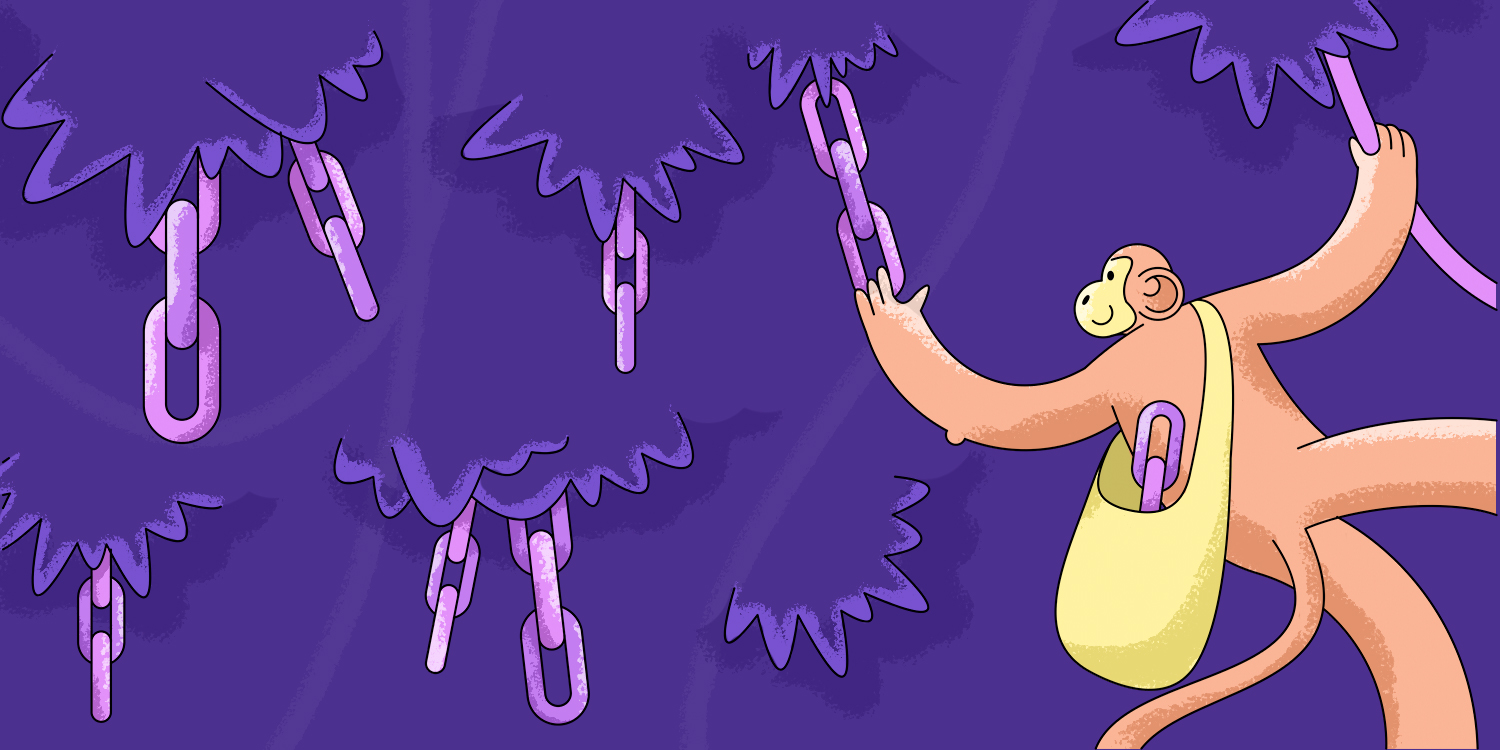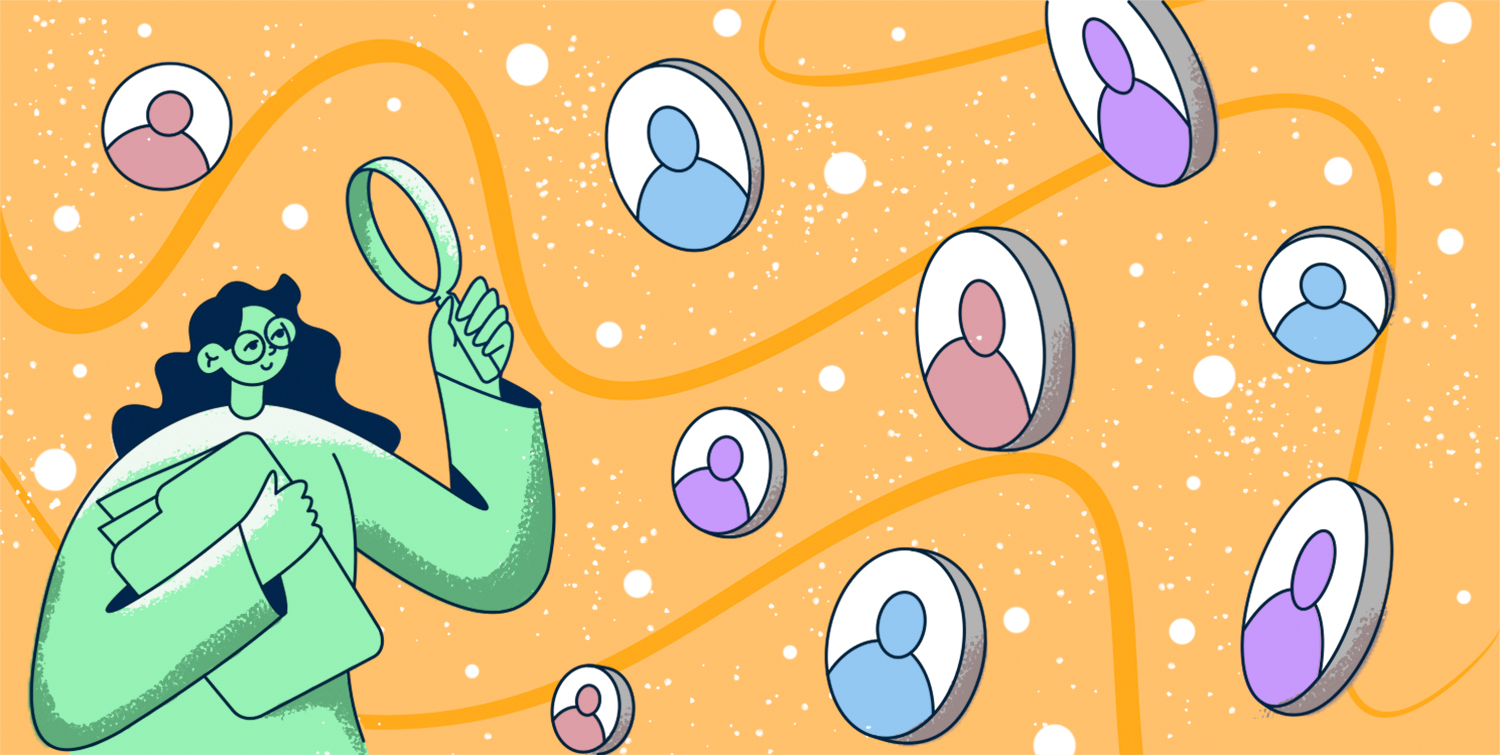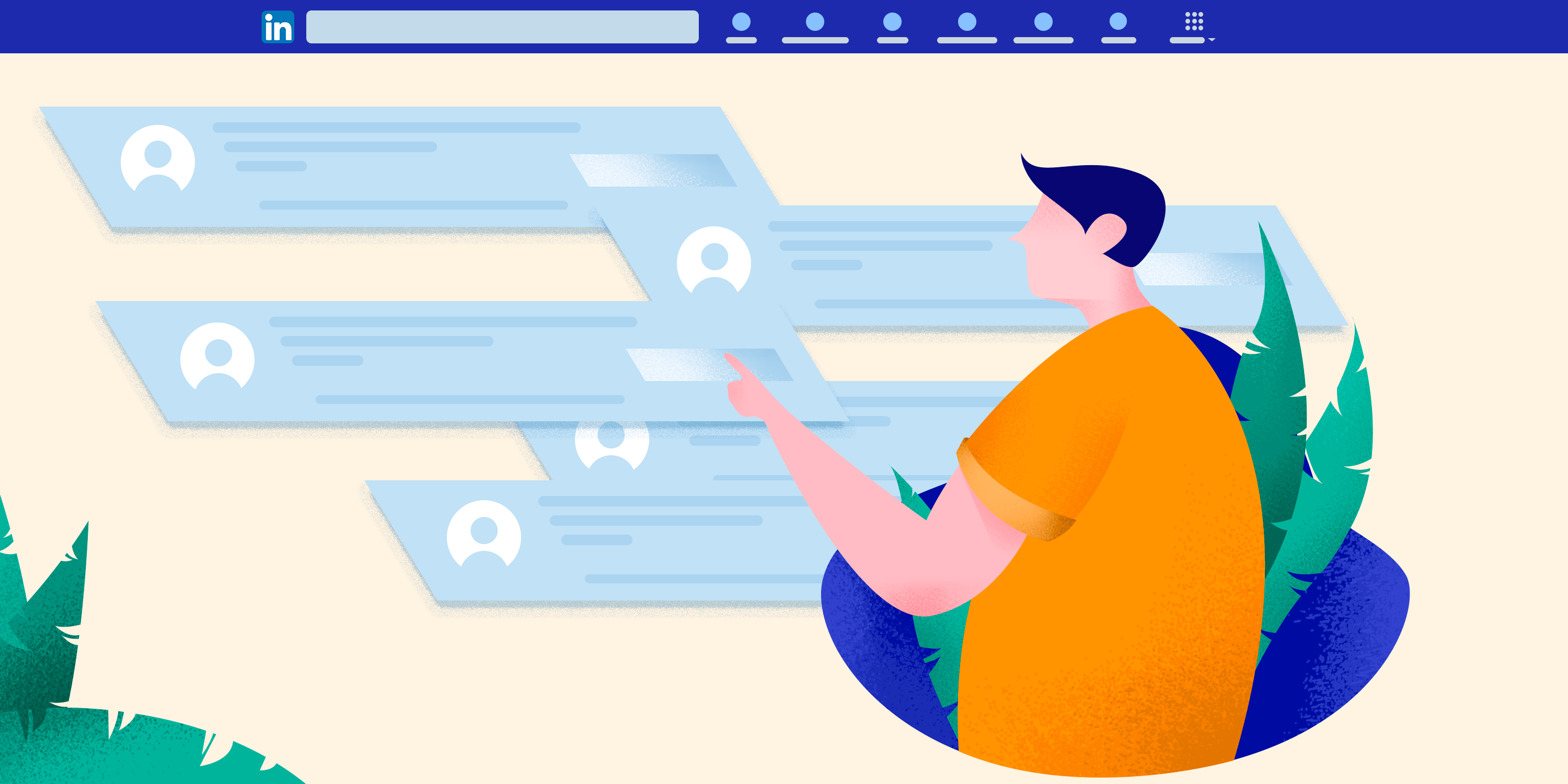People say that patience is a virtue, but when it comes to job opportunities, waiting can be a costly mistake, especially after an interview.
Instead of hoping to hear from your potential employer and doing nothing, you should send them a strong follow-up email after the interview, which will significantly boost your chances of getting hired.
More than 1 in 5 hiring managers are more likely to dismiss candidates if they don’t send a thank you note after an interview. The same survey shows 89% of hiring managers consider receiving an interview follow-up email perfectly acceptable. So, as you can see, following up on a job interview via email is always a smart choice.

In this article, we’ll go through the 5 main reasons following up after a job interview is important. We’ll also walk you through the process of writing a winning interview follow-up email and share a few excellent examples and templates. Let’s get started!
Outline:
Importance of following up
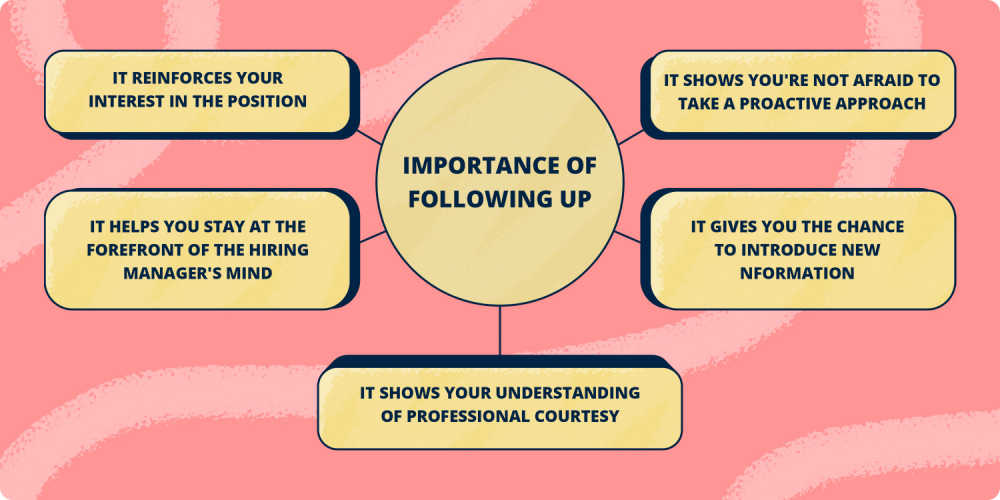
As mentioned above, sending a follow-up email after an interview can help you land the job. Here are the 5 main reasons following up on a job interview is extremely crucial:
- It reinforces your interest in the position. Sending a follow-up email after an interview is the safest way to let the hiring manager know you’re serious about becoming part of their team. If you feel like you didn’t show enough enthusiasm during the interview, sending a follow-up message is a great way to remove all doubts.
- It shows you’re not afraid to take a proactive approach. Most employers look for candidates who are ready to take charge rather than wait for detailed instructions. By sending your interviewer a follow-up email soon after your conversation, you’ll show them you’re driven and bold. This could be what convinces them to choose you for the position.
- It helps you stay at the forefront of the hiring manager’s mind. If you’ve been interviewed for a job at a reputable company, chances are you’re facing intense competition. Sending a carefully crafted follow-up email is a great way to remind them that you’re a fantastic candidate and increase your chances of getting hired.
- It gives you the chance to introduce new information. Job interviews can be stressful, and the stress can make you forget to mention key details about your skill set. Sending a follow-up interview email is a great way to fix this. In a few short sentences, you can let your interviewer know more about what you have to offer.
- It shows your understanding of professional courtesy. Respect and good manners are values that will never go out of style. By saying thanks after a job interview, you’ll demonstrate professionalism and increase your chances of building a good relationship with the hiring manager. If they decide not to hire you for this particular job, they might recommend you for other open positions.
How to write a follow-up email after the interview
Writing an effective follow-up email after a job interview requires a lot of attention, a bit of time, and, of course, good manners. You need to think of the follow-up message as a digital thank-you note for the interviewer’s time and the information they’ve shared with you. This will help you come up with an enticing subject line and killer email body.
Read on to find out how to compose a powerful interview follow-up email in 5 simple steps.
Step #1: Write a clear subject line
First things first: craft a concise subject line. Don’t overthink it or try to be creative; just make it clear what the email is about. Here are 3 simple yet effective interview follow-up email subject lines:
- Thank you for the opportunity, [Hiring manager’s name]
- It was a pleasure to learn more about [Company’s name]
- Thank you for your time and advice today/yesterday/whenever the interview was, [Hiring manager’s name]
Don’t forget to include the interviewer’s and/or company’s name in the email subject line. Personalization is one of the most popular email communication trends in 2024.
Step #2: Start the body of the email by expressing your gratitude
Start your first paragraph by letting your interviewer know you appreciate them taking the time to talk to you about the position you’ve applied for. Make sure to address your recipient by name and include the specific job title.
You can also mention the interview date if you don’t send the follow-up email on the same day as your conversation took place.
Step #3: Explain how you can help the company achieve its goals
In the second paragraph of your follow-up interview email, you should highlight your experience, skills, and interests and talk about how they align with the company’s goals.
Here, it’s important to be both specific and brief. Think of this as another opportunity to sell yourself. Try not to repeat everything you said in the interview, but instead mention things you didn’t have the chance to say.
Step #4: Talk about what sets you apart from the other candidates
Before you close your email, remind your recipient what you bring to the table and what sets you apart from other candidates they may have interviewed. Again, if you failed to mention some key information regarding your experience or skill set during the interview, now’s the perfect time to fix that mistake.
Finally, invite your interviewer to ask you any further questions they may have and say that you’re looking forward to hearing from them soon.
Step #5: End the email in a professional manner
Last but not least, end the email with a polite closing sentence like “Best regards” or “Yours sincerely” and your professional email signature. Ensure your signature contains your contact information, specifically your email address and phone number.
When to follow up after an interview
It depends. If this was your very first interview for a particular job at a particular company, you should send a follow-up email as soon as you get the chance. A good rule of thumb is to follow up with the hiring manager within the first 24 hours after the interview.

However, if you were interviewed for the second or third time, you should send a follow-up email after the established deadline for the final recruitment decision has passed.
There’s also a third scenario: the deadline hasn’t passed yet, but you just got another job offer. If you’re not interested in accepting the second offer but want the first company to make a decision faster, you could let them know about it.
What if the company hasn’t responded to multiple emails after the interview?
Unfortunately, not all hiring managers reply to emails from candidates they’ve interviewed. If you’ve sent multiple follow-up messages and haven’t received a single response, it might be time to let it go and start looking for new job opportunities.
You should avoid sending more than 2 or 3 follow-up emails, partly because you can come across as pushy, and the company may be busy, and also because you shouldn’t waste your time if the company has no intentions of messaging you.
Your time is worth as much as theirs, remember, and you are just as much of an asset to them as their job would be a good fit for you. Know your worth!
Interview follow-up email examples
To help you write a professional follow-up interview email, we’ve decided to share a couple of great examples with you. Read on to get inspired.
Example #1: First follow-up email after an interview
|
Subject line: Thank you for your time today, James Dear James, It was an absolute pleasure to talk with you about the position of Content Writer with Mailbutler earlier today. Thank you for taking the time to walk me through the company’s content writing process and listen to my opinions and ideas. I truly enjoyed learning about your use of SEO tools to streamline your workflow. The detailed insight into the position you provided me with convinced me that I could significantly contribute to Mailbutler’s digital marketing success and, as a result, overall growth. My 6 years of experience in content and email marketing enable me to write different forms of thoroughly researched, useful, and engaging content, with your readers and SEO best practices in mind. During our conversation, I forgot to mention that I have a Google Ads certification and have written hundreds of ads so far. Feel free to contact me if you’d like to read some or need more information about another aspect of my experience or skill set. I look forward to hearing from you soon. Yours sincerely, Natalie Wheeler Mobile: 999-999-9999 Email: natalie.wheeler@example.com |
Example #2: Second interview follow-up email after no response
|
Subject line: Checking in regarding the Content Writer position Dear James, During our conversation on June 15, you mentioned that you and Tobias would make the final recruitment decision for the Content Writer role by July 5, which is why I thought to check in. I’m still interested in becoming part of your team, so please let me know if you have any updates or if you would like me to provide you with any additional information to help speed up the hiring process. Thank you in advance. Best regards, Natalie Wheeler Mobile: 999-999-9999 Email: natalie.wheeler@example.com |
Follow-up interview email templates
In a hurry or not confident enough in your email-writing skills? Don’t worry; we’ve got you covered. Take a look at the following two follow-up email templates and choose the one that sounds most like you. Feel free to make as many changes as you like.
Template #1: First follow-up email after an interview
|
Subject line: It was a pleasure to learn more about [Company’s name] Dear [Hiring manager’s name], Thank you very much for your time this morning — it was an absolute pleasure to speak with you about the [Name of the position] role and learn more about [Company’s name]. The details you shared regarding the company’s core values convinced me that this is the kind of environment I’m looking for. When it comes to the [Name of the position] role itself, I believe my experience and skills we discussed this morning would make me a valuable addition to [Company’s name]. One of the many highlights of our conversation was the discussion we had about [Specific issue]. Since I never shy away from challenges, I continued thinking about this particular topic after the interview and came to the conclusion that one of the most effective solutions is to [Explain how you would deal with the challenge in question]. Unfortunately, I forgot to mention that I [Introduce new information about your experience] during our conversation. Please let me know if you need any additional information about this. I look forward to hearing from you. Yours sincerely, [Your email signature] |
Template #2: Second follow-up email after an interview
|
Subject line: Checking in RE: [Name of the position] role Dear [Hiring manager’s name], I hadn’t received a response to my last email, so I just wanted to check in to see if there are any updates regarding the [Name of the position] role. I’m still interested in the opportunity, so feel free to let me know if there’s anything else I can provide you with to facilitate the decision-making process. Thank you in advance. Kind regards, [Your email signature] |
Conclusion
In today’s labor market, having a strong resume isn’t enough to land your dream job. You need to impress your potential employer both during and after the interview.
Sending an engaging follow-up email after your interview might seem like a mere formality, but this formality can put you right at the top of your interviewer’s list. And guess what? It will most likely take you a few minutes to compose one, even if you’ve never done it before!
Apply these follow-up email writing guidelines, adapt the templates provided with the Snov.io’s powerful cold email software, and good luck landing your dream job!
